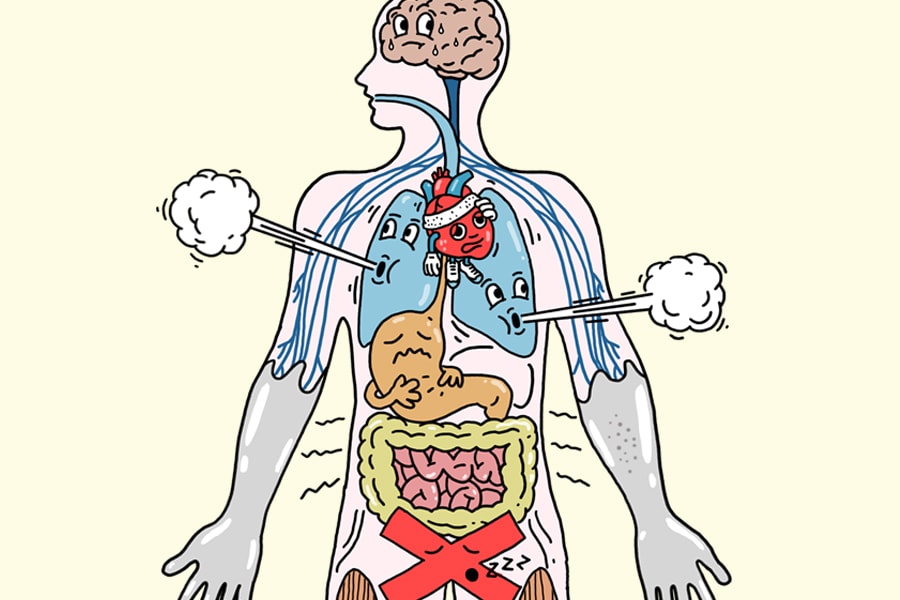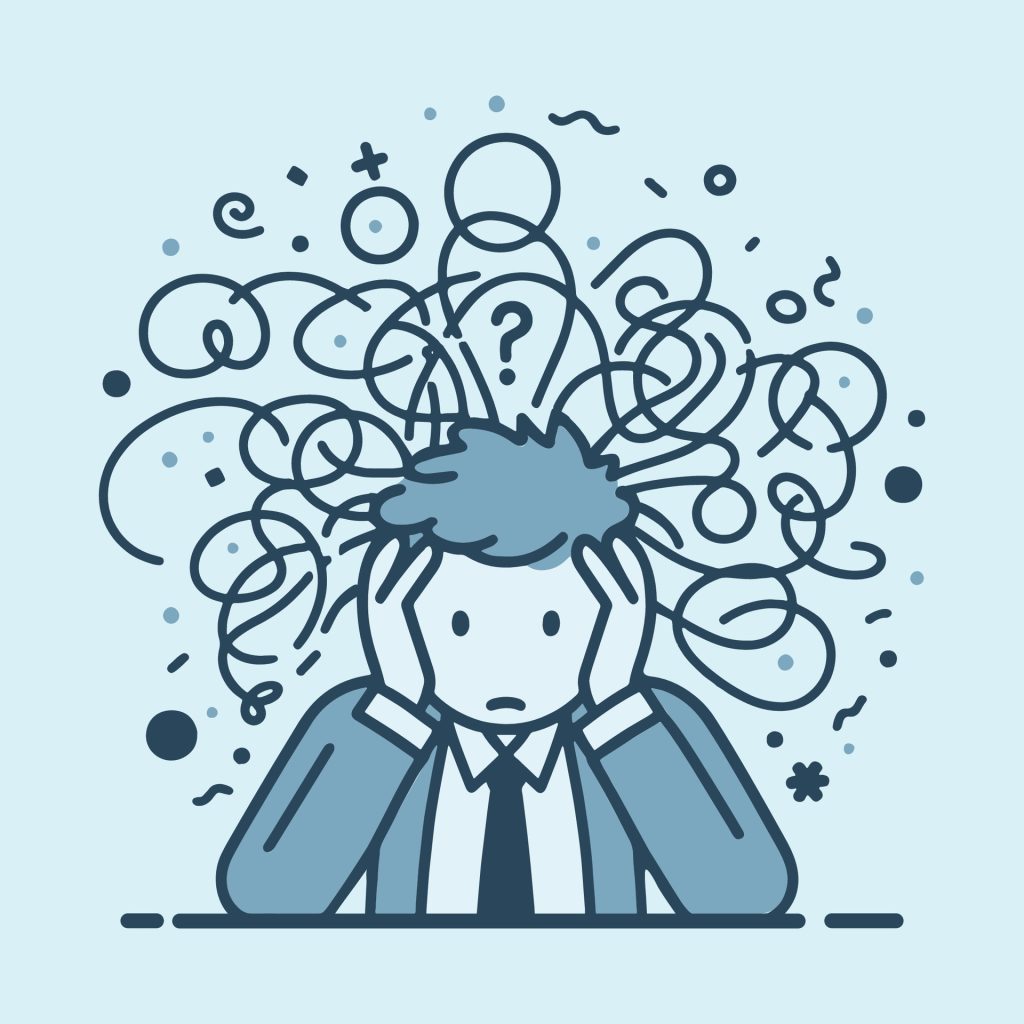It may seem like stress is a very modern problem but it has always been there, the difference is that in today’s world we are now extremely aware of it, mention it, and acknowledge it as an everyday part of our lives. Now, although humans can share the same stressful experiences and situations, how we perceive and face them is totally different.
The first step of approaching this is recognizing the role stress plays in our lives. Even though it is a constant, we must not underestimate it. First, we will approach how the body is affected by stress, and after you will read how it affects our minds and the way cognition is sort of impaired, therefore shaping our world in a much different way than the next person.
Physical Signs
- When the body is stressed, muscles tense up. Muscle tension is almost a reflex reaction to stress and when it is chronic, you are likely to present headaches, migraines and pain in the low back and upper extremities.
- Shortness of breath and rapid breathing can happen, as the airway between the nose and the lungs constricts.
- Acute stress causes an increase in heart rate and stronger contractions of the heart muscle, with the stress hormones flooding your body.
- As for the gastrointestinal system, stress may trigger pain, bloating, and overall gut discomfort. Also, when stressed we may eat much more or much less than usual which can result in heartburn or acid reflux.
- As for the male and female reproductive system, both libido and capacity for reproduction can be limited or even impeded. For the female reproductive system, processes such as pregnancy, premenstrual syndrome and menopause can be severely affected.
The mind and our cognition
Now that you’ve learned about the physical tolls the body has to take on you may be starting to realize how it is for the mind and our mental well-being to constantly be in discomfort.
Stress affects our emotional state and makes interacting with the world difficult, but what may be less obvious is how it changes what we focus our attention on throughout the day. By biasing attention, stress alters what we are conscious of, and in turn, the way we experience reality.
Imagine how it would be if you were only focused on your internal experiences and not being able to appreciate other external situations that are not negative or harmful.
Other cognitive impairments we can have due to stress are the constant worrying; rigid thinking, which makes us more likely to make decisions out of habit; and poor judgment, where we could be more impulsive than usual or simply fail to think decisions through.
After learning all of this, we hope you now have a wider view of all of the factors that come into play when we are living a life with constant stress and the importance of managing it properly so as to have a better well-being.
For more information about stress and mental health you can go to our ISI Insurance Explained section: Emotional & Mental Health for International Students.

